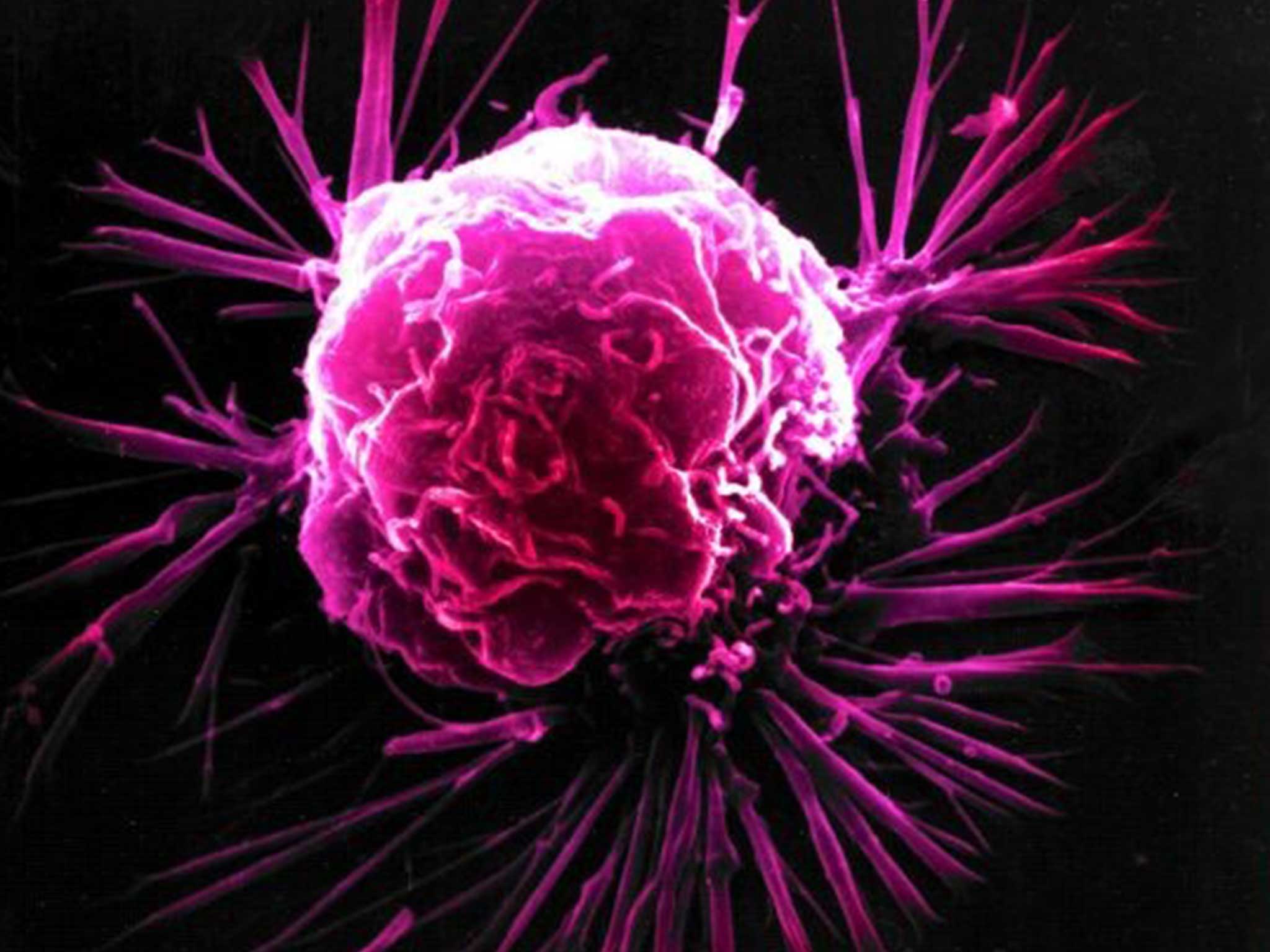Does the secret to curing cancer lie within people who appear to be immune?
'It’s taken us a while since first of all nobody believes it, everybody rolls their eyes and it’s been very hard to get funding'

Your support helps us to tell the story
From reproductive rights to climate change to Big Tech, The Independent is on the ground when the story is developing. Whether it's investigating the financials of Elon Musk's pro-Trump PAC or producing our latest documentary, 'The A Word', which shines a light on the American women fighting for reproductive rights, we know how important it is to parse out the facts from the messaging.
At such a critical moment in US history, we need reporters on the ground. Your donation allows us to keep sending journalists to speak to both sides of the story.
The Independent is trusted by Americans across the entire political spectrum. And unlike many other quality news outlets, we choose not to lock Americans out of our reporting and analysis with paywalls. We believe quality journalism should be available to everyone, paid for by those who can afford it.
Your support makes all the difference.A cancer-killing drug has been created from the immune systems of people who appear to be able to fight off the disease.
For years the medical world has struggled to tell the difference between ‘tiger’ cancers that will quickly kill the patient and non-fatal ‘pussycats’.
But in recent years the theory has emerged it is not necessarily that the cancer is weak but that the immune systems of some people are particularly good at containing tumours.
Now researchers in the US have identified an antibody they believe is responsible and have turned it into a drug that attacks and kills cancer cells.
Professor Edward Patz, who led the study, said: “This is the first completely human-derived antibody developed as an anti-cancer therapy.
“This could represent a whole new approach to treating cancer, and it’s exciting because the antibody selectively kills tumour cells, so we don’t have significant side effects to achieve tumour control.
“We believe we can modulate the immune response and let the body’s own immune system take over to either kill the tumour or keep it from growing.”
Speaking to The Independent, Professor Patz, of Duke University, said he had been in medicine for a long time and was not interested in finding “the next drug that gives you two months additional survival” from cancer.
That led him to investigate cases where cancer had been discovered by accident, such as when a patient with an undiagnosed tumour had a hernia operation.
“If you’d never screened them, you never would have found the cancer, they never would have known they had it and they would have died with the cancer, not from the cancer,” he said.
The researchers then looked for evidence that these people’s immune systems were somehow different.
After identifying an antibody as a likely candidate, they have now tested it on human cells in the lab and in mice and reported their findings in the journal Cell Reports.
In both cases, the antibody killed cancer cells. The mice still died from cancer but Professor Patz said this could be because they were not given a sufficient dose.
“We showed that it killed tumour cells -- not necessarily all of them, but it clearly has an effect on tumour cells,” he said.
The drug also appeared to prompt a more effective response from the immune system and it is thought this could "potentially have the most profound impact on cancer outcomes long-term".
He admitted the idea that some people’s immune systems were capable of preventing cancer from spreading in the body – the main reason people die from the disease – was still “controversial”.
But the researchers are now ready to try using the antibodies in human cancer patients in clinical trials of the new drug.
“It’s taken us a while since first of all nobody believes it, everybody rolls their eyes and it’s been very hard to get funding,” Professor Patz said.
He stressed more work was needed to understand the true potential of the treatment – a point echoed by Cancer Research UK.
Dr James O’Malley, the charity's research information manager, said: “Harnessing the power of a patient’s own immune system and turning it against cancer is an increasingly exciting area of research.
“The cancer-targeting antibodies used in this study were effective at fighting cancer cells in the lab, so the next step will now be to show this approach is just as powerful, feasible and, most importantly, safe for use in people with cancer.”
Join our commenting forum
Join thought-provoking conversations, follow other Independent readers and see their replies
Comments